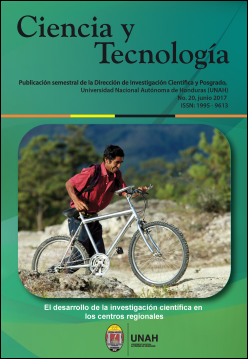Guidelines and styles of parenting present in Honduran families in 2015
DOI:
https://doi.org/10.5377/rct.v0i20.5502Keywords:
Upbringing, education, upbringing styles, upbringin pattern, upbringing practicesAbstract
With the objective of analyzing the upbringing phenomenon in the Honduran family context, through assessments and interpretations of the heads of families of eight locations of de country and the data collected in other eight representatives localities with high population convergence in Honduras. This research has been carried, based on two methodological axes: a quantitative one, in which elements of a descriptive and variables type were used that allowed us to know how is the Honduran family is conformed. The other, qualitative, brings you two techniques: collaborative groups and semi-structured interviews; all two allowed to understand the styles of learning acquired in the Honduran family context.
One of the main findings is to corroborate that Honduran mother and fathers are not aware that the concept of “raising” refers to an eminently educational act lived within a space of affection towards children. The word “raise” is understood, rather, as a way to ensure the survival of the members of a family.
Revista Ciencia y Tecnología No.20, junio 2017; 173-187
Downloads
2061
Downloads
Published
How to Cite
Issue
Section
License
© Revista Ciencia y Tecnología
Authors who publish in this journal accept the following conditions: In accordance with the legislation of copyright, Revista Ciencia y Tecnología, recognizes and respects the moral right of authors, as well as the ownership of the patrimonial right, which will be ceded to the magazine for its diffusion in open access in printed version and in digital format. By being part of multiple indexers, databases and reference systems, the articles published by Revista Ciencia y Tecnología will be visible and will be downloaded from these websites, indicating, in all cases, the authorship of the articles, the date of publication and the number of the journal to which they correspond.




